21 Thought-Leader Professors in Data Science

The field of data science continues to grow, and with it come thought leaders who contribute to the industry through outreach and education. Many of the data science professors teaching today are leaders in the big-data field, speaking at conferences, writing books, and even creating groundbreaking big-data developments themselves. Find out which schools boast the most influential leaders in the data science industry.
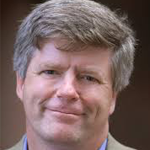
President’s Distinguished Professor of Information Technology & Management
Specialties: Business process reengineering, knowledge management, enterprise systems, analytics
Conferences: Keynote Speaker, 2014 Informs Business Analytics & Operations Research
Books: Big Data @ Work, Analytics at Work, Enterprise Analytics, Keeping Up with the Quants
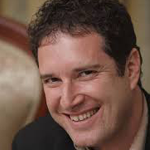
Associate Professor, Mechanical & Aerospace Engineering
Specialties: Evolutionary robotics, design automation, rapid prototyping, artificial life, self-assembly
Notoriety: Named one of Forbes’ World’s Most Powerful Data Scientists

Toshiba Professor of Media Arts and Sciences, Director of Human Dynamics Lab, Director of MIT Media Lab Entrepreneurship Program
Specialties: Computational social science, organizational engineering, mobile computing
Notoriety: Named one of Forbes’ World’s Most Powerful Data Scientists in 2014
Projects: Social Physics
Books: Social Physics: How Good Ideas Spread — The Lessons from a New Science, Honest Signals: How They Shape Our World

Professor, Computer Science and Electrical Engineering Departments
Specialties: Distributed computing systems, digital libraries, database systems
Conference: IEEE BigData 2013, Using Crowdsourcing for Data Analytics
Projects: Stanford Digital Library Project
Books: Database Systems: The Complete Book, Database System Implementation

Consulting Professor, Stanford School of Engineering
Specialties: Management science and engineering
Conferences: 2014 Informs Conference on Business Analytics & Operations Research
Projects: SmartOrg
Books: The Smart Organization: Creating Value Through Strategic R&D
On big data’s impact on our lives: “Exploring data can be revealing. However, big data is not so good for decision-making. We have asked executives to look back at important decisions to see how much more data about the past would have helped, versus better judgements about the future. We get about 30% from past data and 70% from better judgements. Also, for big decisions it may be more important to adapt well and quickly as the future unfolds. So good data about the present and near past may loom in importance. Analysis of decision can direct data searches to the most beneficial areas. Of course, sometimes just playing with the data can produce valuable insights, but that is serendipity.”

Assistant Professor, Computer Science
Specialties: Theoretical and practical problems in data management
Projects: Hazy

Research Professor, Google Fellow, co-founder of Udacity
Specialties: Robotics, AI
Conferences: DataBeat 2014
Projects: Google’s Self-Driving Car, Google Glass, Udacity
Recommendation for learning about big data: “Udacity has a data science track built by industry. Leading companies like Cloudera, Facebook, and MongoDB have contributed courses. Learn from the leading experts in the world. All content is accessible for free, and every student can sign up for our classes.”


Professor of Computer Science
Specialties: Large-scale data management infrastructure and applications
Conferences: IEEE BigData 2013, The Berkeley Data Analysis Stack: Present and Future
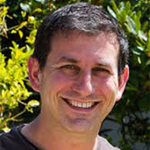
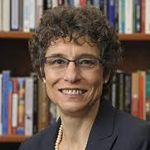
Dean and Professor, School of Information
Specialties: Economics, international communities and migration of talent
Conferences: DataEDGE
Books: The New Argonauts: Regional Advantage in a Global Economy, Regional Advantage: Culture and Competition in Silicon Valley and Route 128
On big data and how it touches our lives: “The impacts of big data are currently visible in the worlds of social media, technology, advertising and marketing, and finance. Big data is also many science and engineering fields like physics, biology, and astronomy. It will increasingly be visible in in health care, schools, government, and in a wide range of older industries, from autos to aerospace. Virtually every organization will want to be able to work with their data.Big data is working behind the scenes when we surf the web, use social media, and even email–whether on our mobile devices or computers. Big data is being used in our financial transactions and in our cars. It is really widespread–and soon will become ubiquitous.”

On big data’s largest impact on our lives: “Today, more and more companies collect and use data to provide better services to their users (e.g., Amazon), improve safety (e.g., Boeing), improve efficiency (e.g., General Electric, PG&E), detect fraud (e.g., Paypal), and, for better or worse, optimize ad targeting. In the future, we will continue to see improvements in all these areas, and, in addition, we will see great strides in new areas, such as medicine (e.g., cancer genomics), energy conservation, and environment protection.”

Chancellor’s Professor, Department of Statistics, Department of Electrical Engineering & Computer Science
Specialties: High-dimensional data problems, statistical modeling and analysis of data structures, machine learning
Projects: Stability, Embracing Statistical Challenges in the Information Technology Age

Founder of Databricks, Assistant Professor in EECS (in 2014 academic year)
Specialties: Tools for large-scale data-intensive computing
Projects: Spark, Shark, Mesos, other systems for big-data scheduling and coordination

Professor of Management Information Systems
Specialties: Decision and risk analysis, analytics, spreadsheet modeling, project/portfolio management
Conferences: 2014 Informs Conference on Business Analytics & Operations Research
On big data’s largest impact: “In recent years, big data was finding a lot of small uses, such as figuring out which pop-up ad to show you on a web page. More recently, it has been used to find efficiencies in business processes, which has a lot of impact in the economy. Big data also plays a role in national security, of course. I don’t think it has yet had tremendous impact on the most important decisions companies and our society makes, but it has the potential to and it should. For example, the debate on healthcare reform involved a lot of conjecture on a wide range of issues about what the likely impacts would be from various changes to the system. Answers to a lot of the questions that were asked or should have been asked might have been found in the existing data covering the experience of many millions of Americans. This would have been possible if enough of the circumstances of each individual case were encoded and analysts were able to extract and compare all the micro experiments of policy variations that happen every day. I would like to see the methods of decision analysis in particular used as a front end to large policy and strategic decisions that would provide a framework for identifying and incorporating the most valuable information to extract from the sea of data.”

Adjunct Professor, Data Mining Consultant at Elder Research Incorporated
Specialties: Optimization, data mining
Conferences: 2013 Predictive Analytics World
Projects: Elder Research
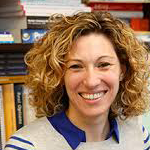
Assistant Professor of Business Administration
Specialties: Multi-criteria decision analysis, behavioral decision making, project management, innovation and new product development
Conferences: 2014 Informs Conference on Business Analytics and Operations Research
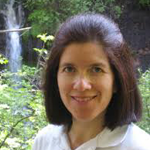
Associate Professor, Department of Human Centered Design & Engineering
Specialties: Human factors in computer interaction, data science, collaborative games
Projects: Scientific Collaboration and Creativity Lab, Sunfall
Recommendation for learning more about big data: “Some good resources for learning about big data can be found in a proposed data science curriculum that I developed along with the eScience Institute. These are the key skills that market research and scientific experience have taught us are critical to data-intensive science. We are also currently developing big data PhD tracks across multiple departments in the University of Washington.”

Associate Professor, Computer Science and Engineering
Specialties: Big data management, sensor and scientific data management, cloud computing
Projects: Myria, Nuage, CQMS, Data Eco$y$tem
On how big data is improving science: “We’ve started to collaborate with scientists on the UW campus looking at their data management challenges from a database perspective. Existing tools are failing them, so they need new tools to help them manage their increasingly large datasets and be successful at doing their science.”

Amazon Professor of Machine Learning, Associate Professor in Computer Science and Engineering, Adjunct Professor in Statistics
Specialties: Machine learning

Associate Professor, Computer Science and Engineering
Specialties: Human factors in understanding large data collections, interactive systems for data visualization
Projects: Data-Driven Documents (D3), Wrangler, Trifacta

